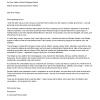I was a Staff Nurse at MBHT until May 2020 when Long Covid caused me to become unable to work. I was hospitalised in November 2020 in the South West and diagnosed with severe ME/CFS. I was diagnosed with Long Covid and significant Dysautonomia by Dr Arnold Deering (Consultant Physician) in January 2021. I learnt of Millie's situation from a petition created to help her situation.
https://www.change.org/p/save-millie-s-life-royal-lancaster-infirmary-mu...
Millie's diagnoses of ME/CFS and Postural Orthostatic Tachycardia Syndrome (POTs) are more than just fatigue and difficulty tolerating upright positioning: These illnesses are linked with a dysfunctional autonomic nervous system. In her case, it is likely that she has an overactive sympathetic nervous system response. This can be tested using autonomic function tests, but these can be difficult to tolerate in cases as severe as Millie's.
In terms of symptoms, Millie has central sensitisation. This means her unconscious mind is creating pain signals in situations when they are not required. It also means that in situations when a pain response would be seen as normal, I.e. when there is a physiological stimulus creating a sensory response, her response is extremely heightened. Unfortunately, as we know that all pain is created in the mind, her pain is just as real as anyone else's. It requires treatment like anyone else's. Unfortunately, we also know that pain like this can be very difficult to treat.
This central sensitisation is why Millie finds any stimulus difficult to tolerate - light, sound, touch, etc. I know from personal experience that these stimuli cause excruciating pain - my eyeballs felt like they were being physically burnt when I took my eye mask off. Sound caused excruciating nerve pain throughout my head, face, and inside my mouth - as if I was being stabbed by small needles over and over. This experience needs to be recognised. Millie is literally being tortured by her own nervous system.
The anxiety that Millie shows is linked with the dysfunction of the autonomic nervous system. It can be viewed as a symptom, not a cause. The cause is usually linked with a highly stressful physiological stimulus, such as a virus (e.g. Covid), even long-haul travel. This anxiety is being constantly perpetuated by symptoms and sensations throughout her entire body. I will repeat, it is not the cause of her illness and therefore should not be viewed as the sole diagnosis.
In terms of treatment, because we are dealing with a dysfunctional nervous system, this central sensitisation requires months of very careful, slow, gentle exposure to stimuli such as light and sound to calm the sympathetic response and allow Millie's body to slowly start to recover. It requires lengthy and slow brain retraining - not because she is consciously making up these symptoms, but because her unconscious mind has created strong neural pathways that are resulting in automatic, unconscious sensations and behaviours. This treatment is not going to be possible in a hospital environment.
We can see it in terms of a patient with extreme tachycardia. If we were to ask that patient to slow their heart rate by themselves and avoid using medication, we as healthcare professionals would be seen as neglecting that patients needs. Absolutely, it might be possible in time for them to slow their own heartrate, but the support and environment they would require for that is often not plausible in a hospital environment. In Millie's case, she is not having a "normal" fear response due to the nervous system dysfunctioning. Therefore, this method is not going to work in the short term. It will require months, or longer, for Millie's nervous system to begin to reset and allow Millie's body functions to start to normalise. She needs medical interventions including medications to treat the very real physiological symptoms and assist this resetting of her nervous system.
In terms of treatment then, I would suggest the following:
- see if Millie can tolerate a small amount of a benzodiazepine and increase dosage to tolerance. If she tolerates this and it helps to calm the nervous system response, she should be discharged with this medication as regular
- If she isn't on an SSRI, these can be used to reduce the anxiety experienced. Due to the nervous system dysfunction, people with ME/CFS are highly likely to experience side effects from these medications, so it is strongly advised to start patients off on the lowest possible dose of the liquid form of an SSRI and build up extremely slowly. E.g. one drop for 2 weeks, two drops for a week, three drops and so on.
- insert a PEG. If Millie did not require an NG feed, then it may have been possible to support her in the community to avoid such an approach. However, this would have taken months and require close support from ME/CFS specialists and her GP to ensure she did not lose too much weight and was getting the appropriate nutrition. As Millie already has an NG, and cannot tolerate the required 30 degree angle for feeding due to her POTs, a PEG is the best option for Millie's ongoing treatment.
With a PEG feed in situ, Millie can be discharged home to a calm environment that can support the necessary resetting of her nervous system. The stay in hospital will have caused this dysfunction of her nervous system to increase dramatically, so it will be some time before Millie is ready to start the necessary process of slowly introducing the fear-causing stimuli in a calm environment to teach the nervous system that the stimuli is not dangerous. Until this time, Millie will continue to be unable to tolerate sitting up or standing, light, sound etc. It will be much longer before Millie will be at a point where she can sit up enough to start slowly working with Speech and Language Therapy to reintroduce liquids and diet orally.
If you have any questions regarding Millie's care, I urge you to contact specialists in Dysautonomia and ME/CFS. I am also very happy to provide suggestions based on my own medical, nursing, and psychological knowledge, and my life experience.
Yours sincerely,
Corrina Skelton
BSc Psychology
MSc Adult Nursing
Title: Ms
Pronouns: She/Her















